Artikolo en la angla (tradukota):
www.tove-skutnabb-kangas.org/en/lectures_events.html
TESOL 2019, Atlanta, USA
Invited Session
Dr. Phil. Tove Skutnabb-Kangas:
Imagining multilingual TESOL revisited:
Where are we now?
At TESOL 2008 I asked: “What can TESOL do in order not to participate in crimes against humanity? What is TESOL doing?” Read my short conclusion from 2008. I could just repeat it, because my reply now, in 2019, is: “In practice, there has been very little change”.
What I say will be a shock to many of you. Reflect hard on the message before you shoot the messanger. Remember that this almost 80 years old messenger has researched, and reflected on this for a life-time.
Teaching and learning English is part and parcel of formal education that should support children in increasingly many parts of the world to become minimally bilingual, preferably multilingual. If TESOL only supports the English part of this multilingualism, you may and mostly are participating in linguistic and cultural genocide.
I am here concerned with ITM children. ITM stands for Indigenous/Tribal, Minority and Minoritized/Marginalized children; this also includes immigrant and refugee minorities. According to UNESCO, 2019, around 40% of the children who attend elementary school in the world (and many don’t) are not taught in a language that they understand. This language that they do NOT understand, if often, but of course not always, English.
What does solid research, and educational, linguistic, pedagogical, psychological, sociological and political science argumentation tell us? If ITM children are educated using a dominant language such as English, as the main teaching language, in a submersion or even early-exit transitional programme, this prevents access to education because of the linguistic, pedagogical and psychological barriers it creates. Thus it violates the human right to education.
This right is expressed in many international human rights documents, also in the UN Convention on the Rights of the Child (Art. 29). The Convention has been ratified by ALL other UN member states except Somalia. The USA was the next but last of the world’s states to ratify it.
Submersion and early-exit transitional education often curtails the development of the children’s capabilities and perpetuates thus poverty in the world – this conclusion is based on economics Nobel laureate Amartya Sen’s theories on capability development. The theories have been developed further for multilingualism by Ajit Mohanty – we launched his latest fantastic book The Multilingual Reality – Living with Languages in November 2018 in India. VERY relevant for all TESOLers.
The assimilationist education that many TESOL members are involved in very often forcibly transfers or attempts to transfer ITM children from their own group to the dominant, English-speaking group, both linguistically and culturally. This education can also cause very serious mental harm: social dislocation, psychological, cognitive, linguistic and, especially, educational harm. Partially through this, it often also causes economic, social and political marginalization. The results can be seen in many countries, and the consequences can last for several generations.
Both of these, namely “forcibly transferring children from one group to another group” and “causing serious bodily or mental harm to members of the group” are two of the five definitions of genocide in the UN Convention of the Prevention and Punishment of the Crime of Genocide (Articles 2b and 2e).
Educating a child always happens in a holistic social context, and understanding that context is vital for any educational changes. There is no reason to restrict a discussion of genocide to the discipline of law – it has been described and discussed in many scientific disciplines. Here I discuss genocide from a historical, sociological, linguistic, psychological, economic, cultural anthropology and political science point of view, i.e. NOT from a strictly legal point of view.
It is extremely important, though, to emphasize that you TESOL English teachers can as individuals be absolutely wonderful, hard-working, creative, and well-meaning in your teaching. You may work incessantly against discrimination and racism. Still, an education that excludes the children’s (or their parents’) mother tongues as languages of instruction can and often does constitute linguistic genocide. This is true even if there may be a few words of the mother tongues on the walls of the classroom, and other “feel-good” attempts to “respect” the mother tongues. You are still discriminating the children.
The legal definitions of discrimination, are today changing from so called evil motive discrimination (meaning actions intended to have a harmful effect on minority group members) to ‘effects’ discrimination’ (meaning that actions can have a harmful effect whatever their motivation) (Gynther, 2003: 48). When discrimination and racism (including linguicism[1]) ‘permeate society not only at the individual but also at the institutional level, covertly and overtly … racial control has become so well institutionalized that the individual [for instance a teacher] generally does not have to exercise a choice to operate in a racist [or linguicist] manner. Individuals merely have to conform to the operating norms of the organization, and the institution [for instance a school] will do the discrimination for them’ (Gynther, 2003: 47; emphases added). This means that the way schools are organised to exclude ITM children’s mother tongues as teaching languages can function genocidally.
When States persist in implementing these English-only or English-mostly educational policies, in the full knowledge of their devastating effects, the education can thus sociologically, psycologically, linguistically and educationally be termed genocide, according to two of the five definitions in United Nations 1948 Genocide Convention.
But this is not all. Article 3 of the Genocide Convention enumerates the five actions which are punishable. According to Article 3e, even “complicity in genocide” is punishable. You can thus be “complicit” if you accept the English-only (or –mostly) education.
Article 4 about accountability lists that persons committing genocide (even those who are “only” “complicit”) shall be punished …” whether they are constitutionally responsible rulers, public officials or private individuals”.
Thus educational authorities or teachers who are attempting to forcibly transfer children of the group, to another group, by forbidding or preventing them from using their mother tongue or enjoying their culture, and who have NOT tried to change the system so as not to be complicit in genocide, should be punished.
What I am saying today is, as usual, 50 years ahead of my time. I can assure you that you TESOLers will most likely not be punished in my lifetime. But you should at least know what the Convention that your country has ratified states. And ACT, much more forcefully than you and TESOL have done so far.
I asked ten years ago: What can TESOL do, here and internationally, in order not to participate in these crimes against humanity? My answer was and is: mother-tongue-based multilingual education for ITM children. Through this, ITM education could promote high levels of multilingualism. This would give better results in terms of school achievement, learning of the dominant language, in your case English, and issues around a positive self-confidence and multilingual identity.
What about money? It is clear, economists tell us, that not even the initial short-term costs would be more than a few percent higher. In the middle and long term, this mother-tongue-based multilingual education would lead to considerable savings. This would include eliminating much of today’s “illiteracy” of tens of millions of children worldwide, and today’s educational wastage.
Today there is a lot of nice talk, even some good intentions and laws. But overall there is far too little implementation and action. You CAN change it! Please do!!!
- - - - -
[1] Linguicism is defined as ”ideologies, structures and practices which are used to legitimate, effectuate, regulate and reproduce an unequal division of power and resources (both material and immaterial) between groups which are defined on the basis of language” (Skutnabb-Kangas 1988, 13; see also my encyclopedia article 2015, called ”Linguicism”).
[TESOL International Association = TESOL: Teachers of English to Speakers of Other Languages ]

 Welcome to Stefano Keller
Welcome to Stefano Keller 








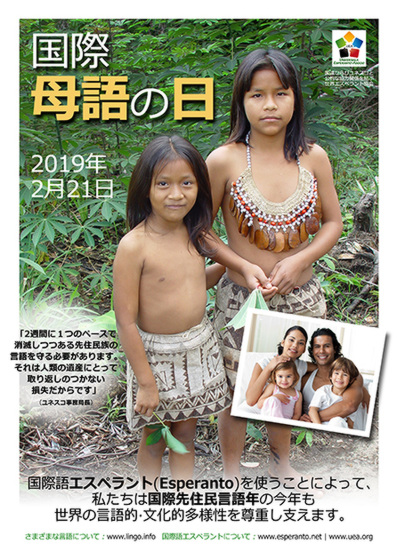

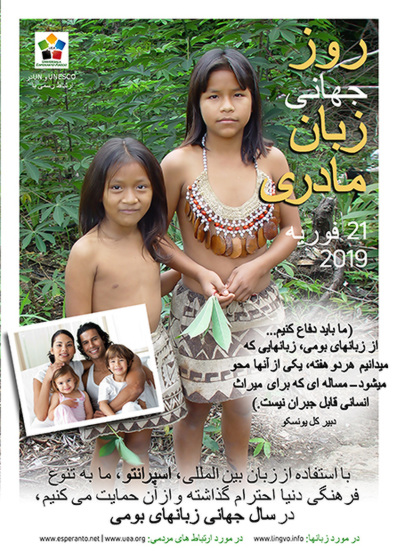
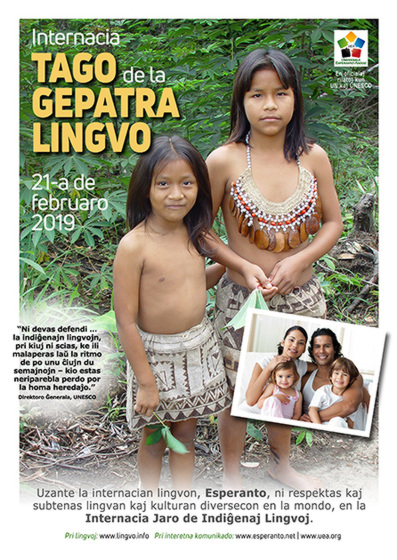
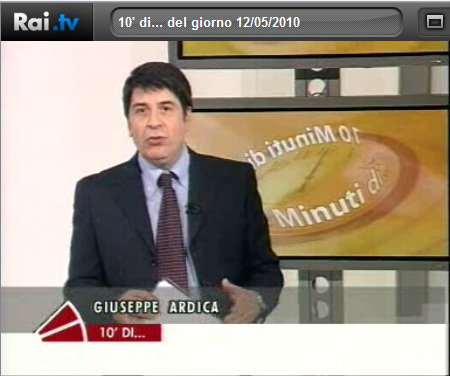
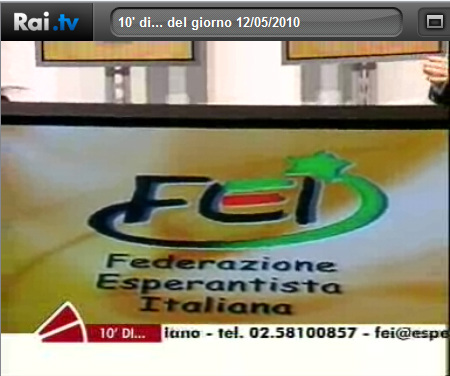
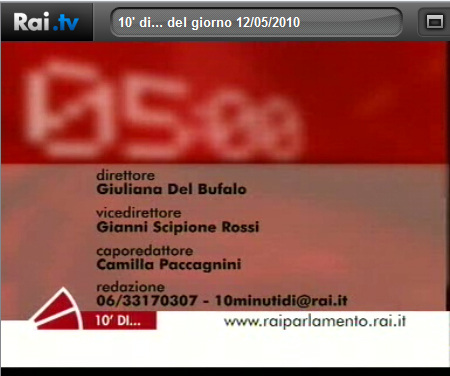
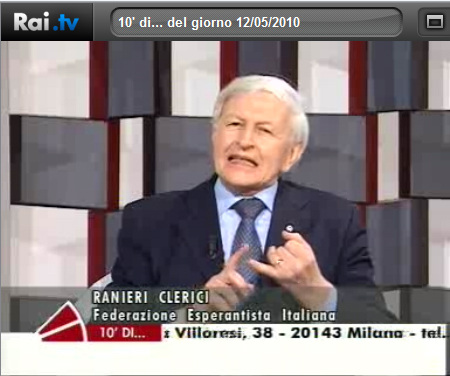
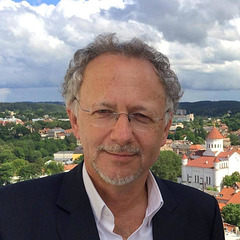
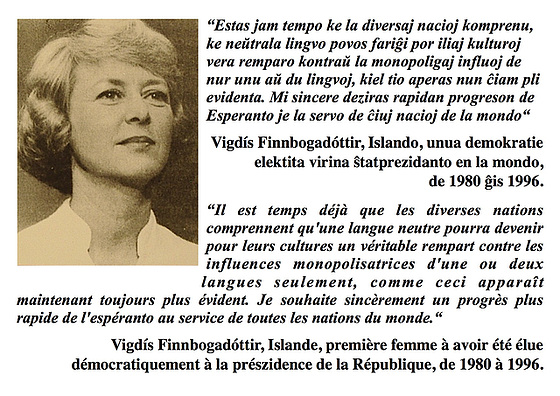
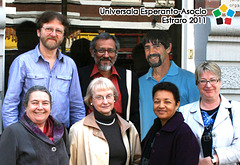
See all messages
esperanto-en-lernejojn@googlegroups.com ...
Plej amike
Ludoviko kaj Julinjo
Temas pri la laboro de UEA surkampe de eksteraj rilatoj kaj pri mia rolo kiel respondeculo pri tio.
Dankon al la retradio Muzaiko.info pro la permeso publikigi ilin ĉi tie:
www.ipernity.com/doc/113837/home/audio
amike,
Stefano
;-))